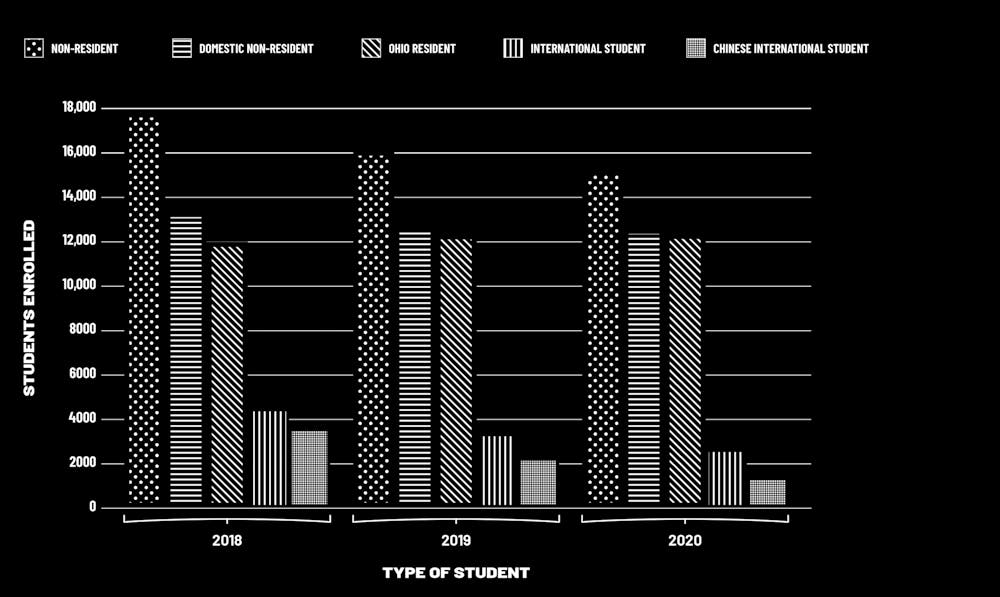Although Miami University has recently admitted its largest class of incoming first-years, the number of students confirming they will attend has dropped nearly 16 percent since 2019.
Overall application numbers have dropped 3 percent from 2019-2020, and Chinese international students’ application numbers have dropped 38 percent in the same time frame.
The steep drop in applications from China has been caused by a number of factors, including the trade war between the U.S. and China, developments in foreign higher education institutions, and more recently, the outbreak of novel coronavirus.
The outbreak has caused a ripple effect in China, as schools and banks close and standardized tests and college fairs are being cancelled throughout the country.
The Board of Trustees (BoT) has decided that it will make the most of this “downtime” with international students by communicating online with admitted students, increasing their efforts with other countries, such as India and Vietnam and extending their application deadline, according to the BoT meeting on Feb. 20.
“While any institution that relies on international enrollments, particularly from China, is not immune to similar enrollment challenges, Miami is in a strong position nationally to enroll and graduate bright students through innovative programming and our continued focus on student success,” Bethany Perkins, director of admissions, wrote in an email to The Miami Student.
“Innovative programming” includes events such as the Red Brick Roadshows and Make It Miami events, which invite admitted students to learn more about the university either in their home state or at Miami, respectively.
Not only are international applicants dropping, but domestic early action and early decision applications are decreasing every year. According to Hobson’s Naviance, a company that categorizes information on universities for potential students, early decision applications dropped 29 percent nationally, while early action applications have only dropped about 3 percent nationally.
“The decline in early decision applications and early confirmations are not signals that students won't enroll as much as they are signs that students of this generation are waiting to make their decision until they've seen the full financial picture (and campus),” Perkins wrote.
The declining trends of various types of applications are the norm across the country, and Miami is actually faring better than other schools, Perkins wrote.
Miami has developed new marketing techniques, which include promoting its honors and graduate programs and facilitating family Facebook pages.
New marketing strategies have also been developed through Miami’s website. Michele Sparks, vice president of university communication and marketing, was heavily involved in the process of changing the website to make it easier for incoming students to navigate.
Enjoy what you're reading?
Signup for our newsletter
“We want to make sure that we’re bringing in, continuing to bring in, the best and the brightest students, so absolutely this is driven; it is cleaning it up to make sure that we’re giving the right information to the students the way that they need it,” Sparks said.
In addition to revamping the website, Sparks said the marketing team is also working to increase their broad online presence, using primarily social media and emails. Print materials are still mailed out, mostly to reach the parents of prospective students.
Despite the decline in applications, the enrollment numbers are growing, and Miami fosters a community that works to maintain these numbers, Perkins wrote.
“We are helping students make their decisions by providing exceptional service, competitive aid and showing them the unique opportunities our campus – and, most importantly, our community – has to offer,” Perkins wrote.
@maggieloup




